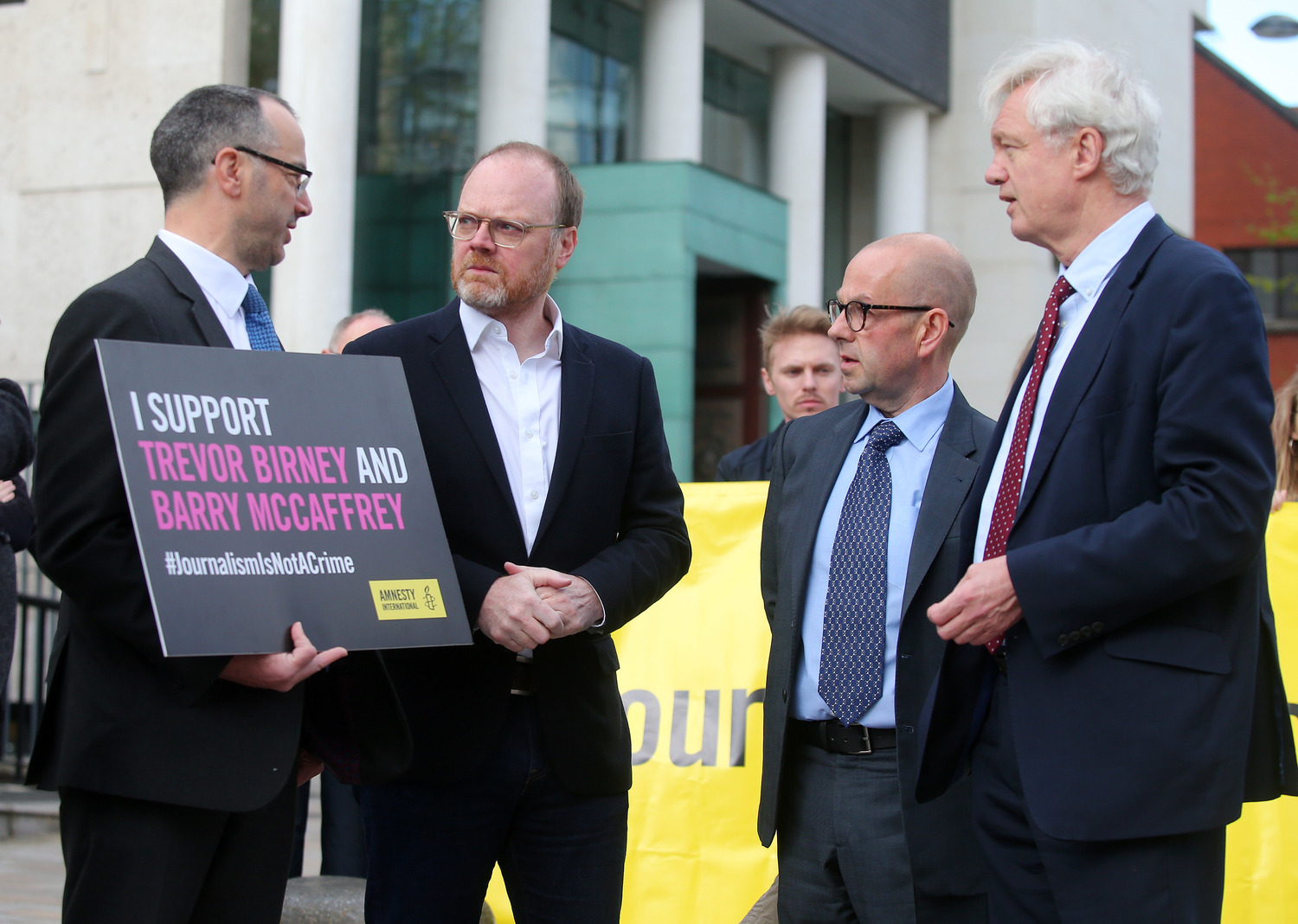
A National Union of Journalists' vigil in Belfast last year to mark the third anniversary of the murder of Lyra McKee. File photo by Declan Roughan, Press Eye
THE murder of journalist Lyra McKee and the arrest of two documentary makers investigating the Loughinisland massacre have contributed to the UK being ranked below Israel in a new global index of freedom of expression.
The UK has been ranked in the third tier of the global index - below Chile, Uruguay and the Dominican Republic - due to the “chilling effect” of policing, government policies and the treatment of journalists.
In rankings compiled by advocacy group Index on Censorship, the UK was listed as only ‘partially open’ in every key metric, including media, academic and digital freedom.
The pilot project used data from dozens of trusted sources, including Reporters Without Borders’ World Press Freedom Index, UNESCO’s Observatory of Killed Journalists and the Global Cybersecurity Index and Netblocks’ Cost of Shutdown Tool (COST), to compile its rankings.
The data looked at 2021 but also included some information from 2020.
It is understood the data highlighted concerns around a lack of convictions for the murders of reporters Lyra McKee in April 2019 and Martin O’Hagan in 2001, and the treatment of journalists Barry McCaffrey and Trevor Birney, who were falsely arrested in 2018 over their documentary into the Loughinisland massacre.
Ms McKee (29) was shot dead by the New IRA while observing rioting in Derry's Creggan estate.
Mr O’Hagan was shot dead by the Loyalist Volunteer Force (LVF) in Lurgan, Co Armagh, in September 2001.
Mr Birney and Mr McCaffrey were falsely arrested in August 2018 over their documentary No Stone Unturned into the Ulster Volunteer Force (UVF) murder of six Catholic men in Loughinisland, Co Down, in June 1994.

L-R) Patrick Corrigan from Amnesty with journalists Trevor Birney and Barry McCaffrey and Conservative MP David Davis in 2019. File photo by Jonathan Porter, Press Eye
Last week, Amnesty International wrote to PSNI Chief Constable Simon Byrne after a PSNI review into the Loughinisland case, carried out by a senior barrister, questioned whether police should ever have investigated the journalists.
Jessica Ní Mhainín, Index on Censorship’s head of policy, said the UK’s low ranking was caused by “a variety of factors affecting media freedom, academic, and digital freedom in the UK”.
“These include the case of Julian Assange, whose extradition to the US is still being fought, the threats of violence facing journalists in Northern Ireland, the arrest of two journalists in Northern Ireland in 2018, the lingering impunity for the 2001 murder of journalist Martin O’Hagan, and the proliferation of Strategic Lawsuits Against Public Participation (SLAPPs) in the UK - dubbed 'the SLAPP capital of the world',” she said.
SLAPPs are deemed as legal actions which seek to intimidate and deter journalists from reporting.
A 2020 Foreign Policy Centre survey of investigative journalists across 41 countries found that almost a third (31%) of legal threats against reporters originated in the UK.
The UK’s third tier ranking puts it on the same level as Moldova, Panama, Romania, Taiwan, and South Africa.
It is understood Index on Censorship has ongoing concerns with the UK government’s response to media freedom.
The Council of Europe Platform reports on serious threats to the safety of journalists and media freedom in Europe.
Of the seven media freedom alerts filed to the platform last year - including concerns about the arrest of three journalists while covering Just Stop Oil protests in Britain - the UK government only responded to two of them.
 By
By